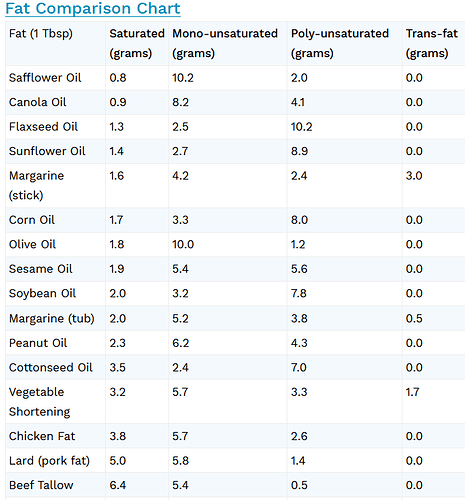It uses the long-running Nurses studies. It’s crap-idemiology of the first order. It’s based on white people, for one. For two, it’s based on FFQs, which are not only terrible, but lead to things like virtue signaling (if you “know” red meat is “bad” and consider yourself “healthy”, you will say that you ate less red meat than you really did; meanwhile, the people who don’t give a crap will have the temerity to say they ate red meat).
Why I gave up on KETO and went back to SAD and vegetable oils
Get them to document that assertion. I think you might be surprised how flimsy the research is, on which that assertion is usually based.
Dr. Georgia Ede did an analysis of the report the IARC, part of WHO, published a couple of years ago, and looked at every single paper they cited. It was a very interesting review, because half the studies cited did not even mention red meat, and a number of the studies used had serious methodological errors.
One point that is often made to “prove” that red meat is carcinogenic, is the nitrate and nitrite content of meat, but somehow omitting to take into consideration the fact that many plants that are considered healthy contain even more nitrates and nitrites per gram. But somehow, the same chemical is dangerous in one food and quite thoroughly safe in another. And of course, the data about the dangers of nitrates and nitrites is still quite tentative, and not very solid, at this point.
A lot of the antipathy towards meat dates back to the middle of the 19th century, when Ellen G. White, Prophetess and founder of the Seventh-Day Adventist Church, inveighed against meat, because she felt it incited “fleshly lusts.” The whole breakfast cereal industry was invented by her followers, the Kellogg brothers, as a means to get people to stop eating bacon and eggs (or meat) for breakfast.
If it were only so…
Ancel Keys was reputable, PUBLISHED and subject to intense peer review/scrutiny. We debate (finally) about just how intense the review/scrutiny of his peers. We are now after 50+ years beginning to recover from that PUBLISHED and peer reviewed data, cherry picked to support his premise. And all supported by reputable scientists - to this day! And 50 years into one of the greatest health disasters in recorded history. My bet is the final death toll due to Ancel Keys, the peer scrutiny and support from reputable scientists he received is an order of magnitude beyond the Black Death of the Middle Ages.
Sure, we want published data, REAL scrutiny and multiple replications of the results. We ought to get that BEFORE making massive societal changes, like those that occurred after Keys published. I think it might also be a good idea to be open to different ways to accomplish it. Unfortunately, peer review has become buddy review.
PS: Demonizing ‘red meat’ is nonsense. The human race became the dominant species on earth eating fat and mostly red meat for 3+ million years. If there was something wrong with it, we would not even be here discussing it.
and corporation backed money review and more 
follow the dollars everyone and we see massive patterns 
When a simple google search for “What’s wrong with peer review” turns up 232,000,000 results and a simple NCBI search for “problems peer review” turns up 87684 results, I think there’s ample cause for concern. I think a high degree of skepticism is in order and we need to consider alternatives.
I posted this in Jul 2019. All the included links still work. Anyone who thinks ‘peer review’ is useful, please check it out.
Remember debates pre-Google? It’s a bit like those of us who go by what our gut tells us (literally).
The science is in! It’s the lack of pirates that is responsible for global warming.
#Bringbackpirates
Been saying what for years?
The main thrust of the article I believe is in the first two paragraphs, basically stating animal fat is bad and vegetable fat is good.
I also believe studies and articles of this nature, if I may prognosticate, will lead to a stronger, more persistent push toward eating lab-grown meat. And that has nothing to do with health, it’s all about the money. They can’t patent real meat, but they can patent lab-grown meat.
Barely looked at it, stopped at this statement:
those who ate the most vegetable and polyunsaturated fats (such as olive oil) 12 percent less likely to have ischemic strokes compared to those who ate the least.
Olive oil is good because it is NOT a polyunsaturated fat. Wouldn’t trust anything in that article.
I think you mean to say that olive oil is relatively low in PUFAs. Like this:
I was trying to find one that I used to use, which was more picture-oriented. It had a pictorial where the fats were different colors. I can’t remember where that was though.
seed oils and ‘fake processing of that oil’ to be full truths from that processing are just evil LOL
I put my truths out there and I got alot ‘of google’ to back me up HA
The processing required to produce the industrial seed oils is impressive. And a bit nauseating, to be honest. The fruit oils (avocado, coconut, olive) require basically only pressing.





